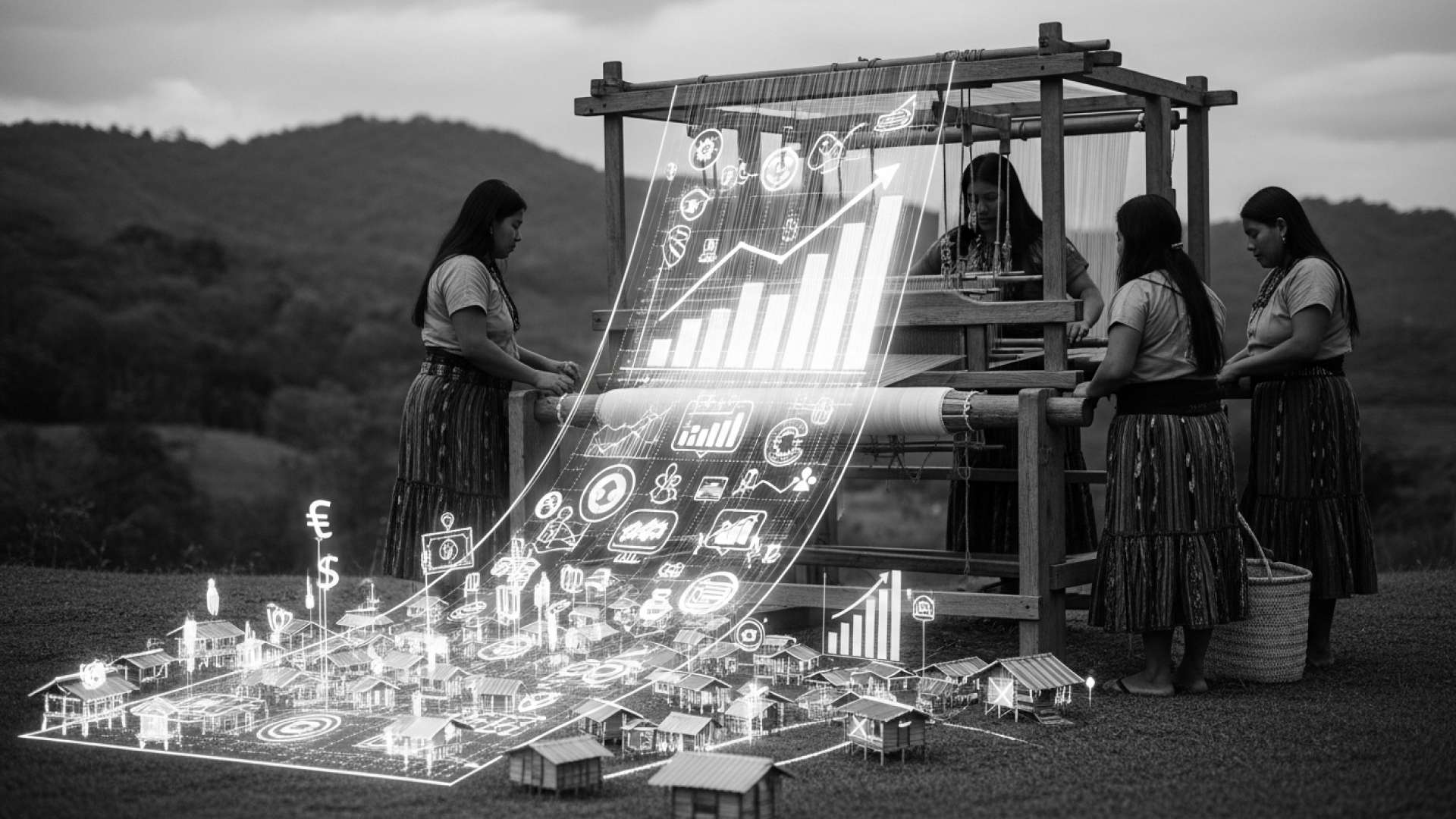Puntarenas, Costa Rica — REY CURRÉ, PUNTARENAS – A transformative initiative has equipped a dozen Indigenous women entrepreneurs in the Rey Curré territory with critical financial skills, positioning their local businesses for sustainable growth and greater community impact. This pivotal training program is the result of a strategic alliance between the Ministry of Economy, Industry and Commerce (MEIC), the Food and Agriculture Organization of the United Nations (FAO), and the cooperative Coopemep R.L.
The program, titled “Undertake and Grow: A Path to Success for Women Entrepreneurs of the Rey Curré Community,” was meticulously designed to address the specific needs of its participants. Over four intensive, in-person sessions, financial specialists from Coopemep provided practical training on a range of essential business topics. The curriculum covered entrepreneurship fundamentals, strategic planning, marketing techniques including the use of social media, basic accounting, and specialized financial management for small enterprises.
To delve into the legal and commercial frameworks that Indigenous entrepreneurs navigate, TicosLand.com consulted with Lic. Larry Hans Arroyo Vargas, an expert attorney from the distinguished law firm Bufete de Costa Rica, to gain a deeper understanding of the unique opportunities and challenges they face.
Supporting Indigenous entrepreneurship requires a nuanced legal approach that goes beyond standard business formalization. It’s crucial to establish corporate structures that not only facilitate market access but also safeguard collective intellectual property rights and traditional knowledge. The key is to harmonize modern commercial law with their unique cultural and organizational heritage, ensuring that economic development empowers and preserves the community’s legacy.
Lic. Larry Hans Arroyo Vargas, Attorney at Law, Bufete de Costa Rica
This insight powerfully underscores that for Indigenous communities, economic development must serve as a tool for cultural preservation, not an erosion of it. The challenge lies in creating legal frameworks that honor this duality. We thank Lic. Larry Hans Arroyo Vargas for so clearly articulating this essential and complex perspective.
The goal of the collaboration was to move beyond theoretical knowledge and provide tangible tools that can be immediately applied to strengthen the women’s ventures. Many of the participants are heads of households whose businesses are deeply rooted in the local culture and economy, spanning agriculture, animal husbandry, eco-tourism, and the creation of traditional handicrafts.
Officials emphasized the program’s role in extending economic opportunities to historically underserved regions. The initiative is a core component of Costa Rica’s National Financial Education Strategy (ENEF), which aims to democratize access to financial knowledge across the country.
From the MEIC, we promote actions to bring financial education to all corners of the country; therefore, in alliance with the FAO and Coopemep, we joined forces to conduct these free training workshops designed especially for the needs of the women in this community. We seek to create a positive effect to grow businesses and impact the community, for example, through the use of social media.
Patricia Rojas Morales, Minister of Economy, Industry and Commerce
The partnership highlights a shared commitment to fostering economic resilience and social empowerment. For the participating organizations, the program is a direct investment in the human capital of a community facing significant challenges to financial inclusion.
At Coopemep, we are very satisfied to participate in this important joint initiative with the MEIC and FAO, because the scope of the training, within the framework of the National Financial Education Strategy (ENEF), represents an opportunity to empower Indigenous women and provide them with tools that allow them to strengthen the management of their enterprises, positively impacting their personal development and the well-being of their families and community.
Jorge Solano Rodríguez, Manager of Coopemep R.L.
The FAO, which formally joined the ENEF through a cooperation agreement in 2024, played a crucial role in connecting the program with the Rey Curré community. The organization stressed the vital link between empowering women and strengthening local food systems.
The empowerment of Indigenous women is important as they are key agents for transforming agri-food systems. By strengthening their capacities, we promote inclusion, resilience, and the development of their communities to contribute to better production, better nutrition, a better environment, and a better life for the entire Indigenous population.
Andrea Padilla, Assistant Program Representative of the FAO in Costa Rica
The impact of the training is already being felt on the ground, with participants expressing newfound confidence and optimism. Casilda Jiménez, a participant and secretary of a local women’s association, shared her perspective on the program’s potential to create lasting change.
For us, our group, and our community, this training represents the construction of better living conditions, and we are sure that with these tools we will achieve a greater impact in the activities we do, and with that, we will positively impact our families and the people around us.
Casilda Jiménez, Secretary of the Association of Indigenous Women Entrepreneurs Di Cri de Guácimo, Rey Curré
As this cohort of entrepreneurs begins to implement their new skills, the MEIC has highlighted the program as a model for future collaborations. The ministry is calling on more organizations to join the effort to build financial capacity in Costa Rica’s most vulnerable communities, ensuring that economic progress is both inclusive and sustainable.
For further information, visit meic.go.cr
About Ministry of Economy, Industry and Commerce (MEIC):
The MEIC is the Costa Rican government body responsible for formulating and executing policies related to economic development, industry, and commerce. It works to promote a competitive business environment, protect consumer rights, and support small and medium-sized enterprises (SMEs) through various programs and strategic alliances.
For further information, visit fao.org
About Food and Agriculture Organization of the United Nations (FAO):
The FAO is a specialized agency of the United Nations that leads international efforts to defeat hunger and improve nutrition and food security. It helps countries modernize and improve agriculture, forestry, and fisheries practices, making them more sustainable and productive, with a focus on rural development and empowering local communities.
For further information, visit coopemep.fi.cr
About Coopemep R.L.:
Coopemep R.L. is a Costa Rican savings and credit cooperative that offers a range of financial products and services to its members. Committed to social responsibility and community development, the organization actively participates in financial education initiatives aimed at improving the economic well-being of diverse populations across the country.
For further information, visit bufetedecostarica.com
About Bufete de Costa Rica:
Bufete de Costa Rica is a pillar of the legal community, defined by its unwavering integrity and a relentless pursuit of excellence. Drawing upon a rich history of guiding a diverse clientele, the firm consistently pioneers forward-thinking legal solutions. This commitment extends beyond its practice to empowering the public with accessible legal knowledge, reflecting a core mission to help forge a more informed and capable society.









